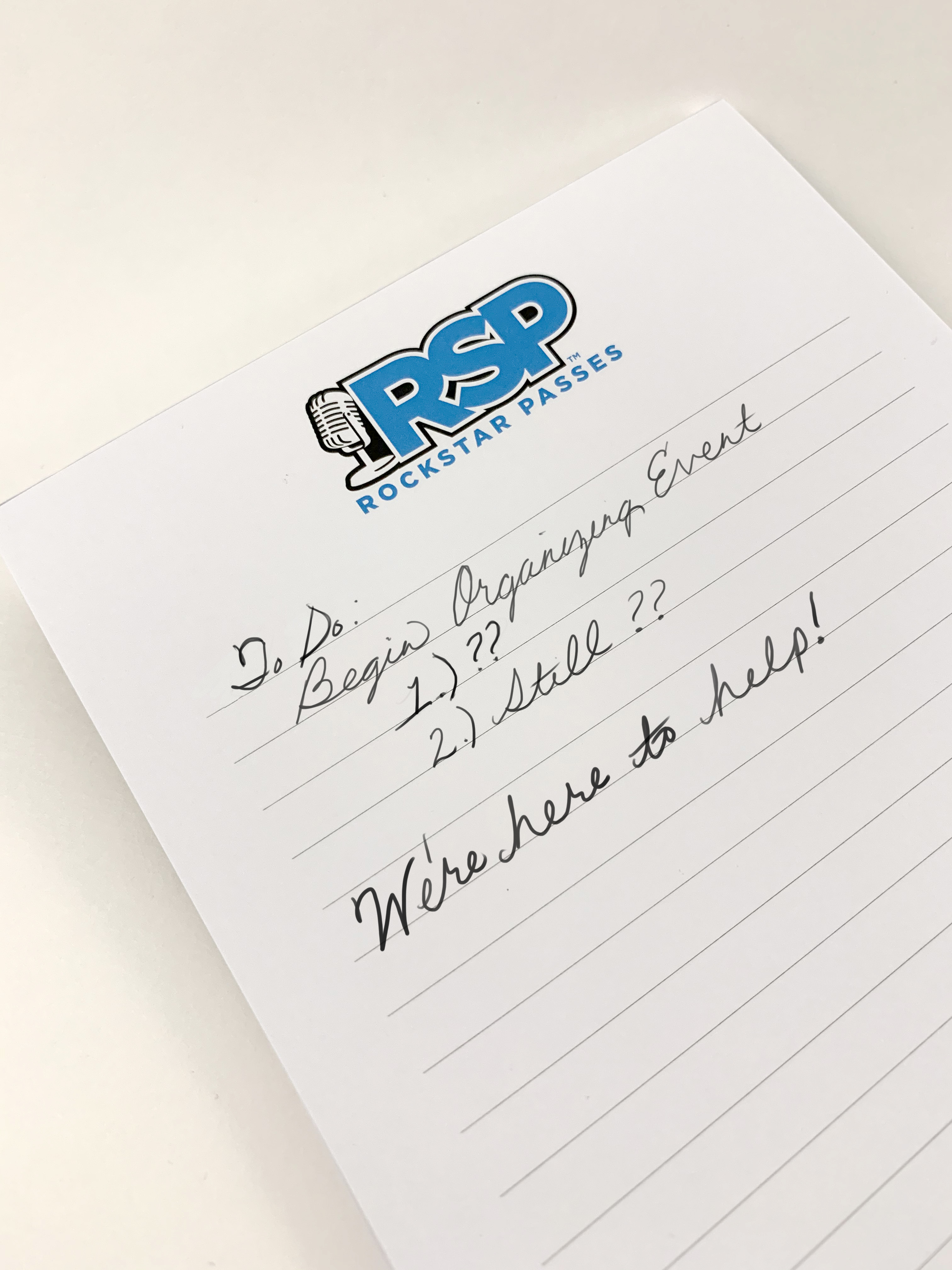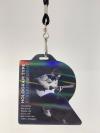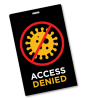Planning an event can seem like a daunting task.
From collecting your registrants, selecting your venue, coordinating services and vendors, organizing your attendees with event badges, and variable elements such as weather or unexpected pandemics, there are a lot of considerations to be made.
To help, we’ve assembled 8 practical tips to streamline that process and make the most of your upcoming event.
1.) Start planning in advance.
Rome wasn’t built in a day, and your event won’t be, either.
You should consider to start the planning of your event at least 4-6 months in advance of your target date.
Like a wedding, there are always hitches that can happen, and there’s nothing more stressful than an upcoming event with dreaded developments.
Attendees will also need time to schedule the event in their calendars and make preparations of their own.
Having this planning time will allow you more flexibility to develop and consider different situations.
2.) Expect things to change.
It’s extremely rare that everything goes according to plan.
From delivery delays, late registrants, and everything in between, you’re working with hundreds to thousands of people, who can all contribute to unexpected situations.
Change is a lot easier to handle when you plan for it in advance.
Find ways to be flexible in your approach, that allow you to bend without breaking, and carry on the best event possible.
3.) Be realistic.
If you’re going to plan an outdoor event, consider the location and make sure your weather is likely to cooperate. In the south, April to July could easily have tornadic activity or weather that springs up seemingly unannounced.
In Washington, it’s probably going to rain… a lot.
Make sure your vision for the invent is one that matches the likely conditions the environment can provide.
4.) Know your budget and your audience.
Possibly the most important factor when considering your planning is to know the constraints of the budget.
You should plan to make an exhaustive list of everything that you’d like to have at your event. Then, consider what things are essential and a few additional amenities that will give you the highest impact possible, without breaking the bank.
It’s easy to shoot the moon with every fun thing we see.
Curating what you use and who you’re hosting will help you to have a tailored, focused, and powerful event that is memorable for your attendees.
5.) Collaborate
Nothing is more stressful than trying to be in the know about every facet of a large event.
This is why delegating to qualified people according to the scope of work is so important.
Find talented contributors who can envision your event alongside you and assist in making each element of your event the best it can be. Remember that your ideas are maybe not always the best, and someone else can help take your strong foundation and make it shine.
- Common areas of collaboration might be:
- Data collection
- Marketing
- Catering & hospitality
- Transportation
- Security & Passes
- Technology
6.) Schedule routine meetings with collaborators
A system is only as strong as its weakest link.
Keeping up with your colleagues will help to motivate them, and also provide opportunities to assist those who may be struggling.
Constant collaboration will also provide everyone involved the opportunity to enhance the work done and contribute to a mutual sense of anticipation for the event.
There are some fantastic assets available to keep up to date with running tasks, some of which are even free within certain parameters.
One example is the service “Asana” which allows you to dynamically track and view task statuses between teammates.
7.) Get vocal and find your ambassadors.
People love to find and promote good content. It makes them feel like they’re in the know and have a good thing to share. When it’s your content or event they share, you reap the benefits of their satisfaction.
By capitalizing on social media and other venues of communication to get the word out about your event, people have the opportunity to share the good news, which makes them feel like the star.
You might consider recording your event and the highlights to put a reel together for subsequent years. Especially popular are years in review, and anniversary videos. They bring sentimental value to attendees, especially those who have been loyal for an extended period of time.
You should also include opportunities at your event for people to check in via social platforms. Tell them the hashtags to use and they can form common bonds with other attendees and help get the word out while having fun doing it.
After your event is done, you can reach out to attendees via social media by sifting through your hashtags to find their posts.
You should consider following up with everyone about a week after the event to see what they liked, and what could be improved for future dates.
Incentivize their responses with perks or honorable mentions afterward.
8.) Capitalize on your event badges and lanyards so that they’re beautiful and functional for your event.
You can pack a lot of information onto your RockStar VIP badges. We can provide dynamic QR codes or other exchangeable information on your conference badge, so that attendees can stay in contact with each other easily, if they choose.
In addition to QR codes, you can print schedules of events, or personalized names and access levels to easily delineate between your attendee groups.
Nothing feels better to a guest than wearing an All Access or VIP pass at their favorite event or music concert.
We can help you give that gift to your attendees when you place your custom event badges order with us at RockStar Passes. We’re here to make you the RockStar!
Contact us here to get started with your order today!








